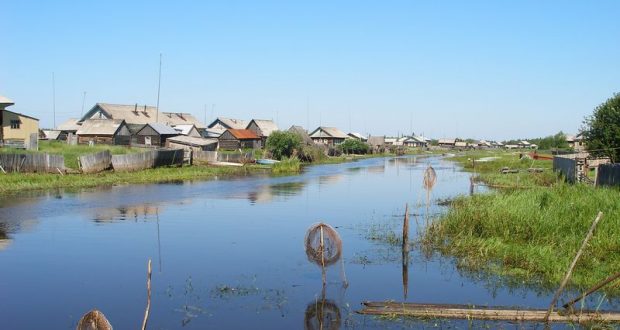Today, on December 14, 2017, at the Center for Local Lore Information of the Pushkin Library in Omsk, a lecture by the public ethno-cultural lecture “Peoples of Omsk Priirtyshye” will be held. The theme of the lecture is “Ethnography about the Tatars of Western Siberia”.
Lecturer – candidate of historical sciences Marina Nikolaevna Tikhomirova – will tell about the ethnic history of various territorial-ethnic groups of Tatars settled in Western Siberia, their material and food culture.
Siberian Tatars historically lived on vast plains east of the Ural Mountains to the Tom River. After the annexation of Siberia to Russia in the late 16th century, here there were Russians, and then other immigrants, in particular “Rossiyskie” (Kazan, Astrakhan) Tatars – natives of the Volga region and the Urals. From the second half of the XVIII century. Their number gradually has increased. Mass migrations to Western Siberia of “Rossiyskie” Tatars (from European Russia) began in the second half of the 19th century. Mixed marriages between local Tatars and “Rossiyskie” in the XX century. became ordinary. Today we can talk about the allocation among the Tatar population of Western Siberia, another group of people – people from ethnically mixed families. At the beginning of the XXI century. Siberian Tatars call themselves not only members of the blood relationship with this sub-ethnos, but also “Rossiyskie” Tatars who live and (or) were born in Siberia and consider themselves Siberians.
The study and understanding of modern ethnic processes and traditional culture of the Tatar population has not only a scientific and educational significance, but also a great practical significance. For example, it can be used by administrative bodies when solving national and cultural problems. To know the origins of the culture of peoples who live in our territory is important and useful for understanding the past, people’s lives, the reasons for their behavior then and now.
For reference:
Marina Nikolayevna Tikhomirova – Candidate of Historical Sciences. Works in the Omsk branch of the Institute of Archeology and Ethnography of the SB RAS as a research associate in the sector of historical museology. In addition to museum work, M.N. Tikhomirova is actively engaged in expeditionary and pedagogical activities. In the years 2000-2009. read special courses at Omsk State University: “Culture of Nutrition of the Peoples of Siberia”, “Ethnography of the Muslim World”; Since 2000, she has been collecting materials on the traditional culture of the Tatars of Western Siberia, surveyed the settlements of the Tatars of the Omsk, Novosibirsk and Tyumen regions.
The main sphere of scientific interests of Marina Nikolaevna is connected with the study of the traditional domestic culture of the Tatars of Western Siberia, the problems of attribution of museum ethnographic monuments. She wrote more than 100 scientific works, including a monograph: “New arrivals for the culture of peoples and national groups of Siberia and Kazakhstan in the collections of the Museum of Archeology and Ethnography of Omsk State University after F.M. Dostoyevsky. ” – Omsk, 2008 (in co-authorship with A.N. Blinova, M.A. Korusenko); “Culture of nutrition of the Tatars of the Middle Irtysh: problems of formation and ethnocultural relations”. – Omsk, 2006.

